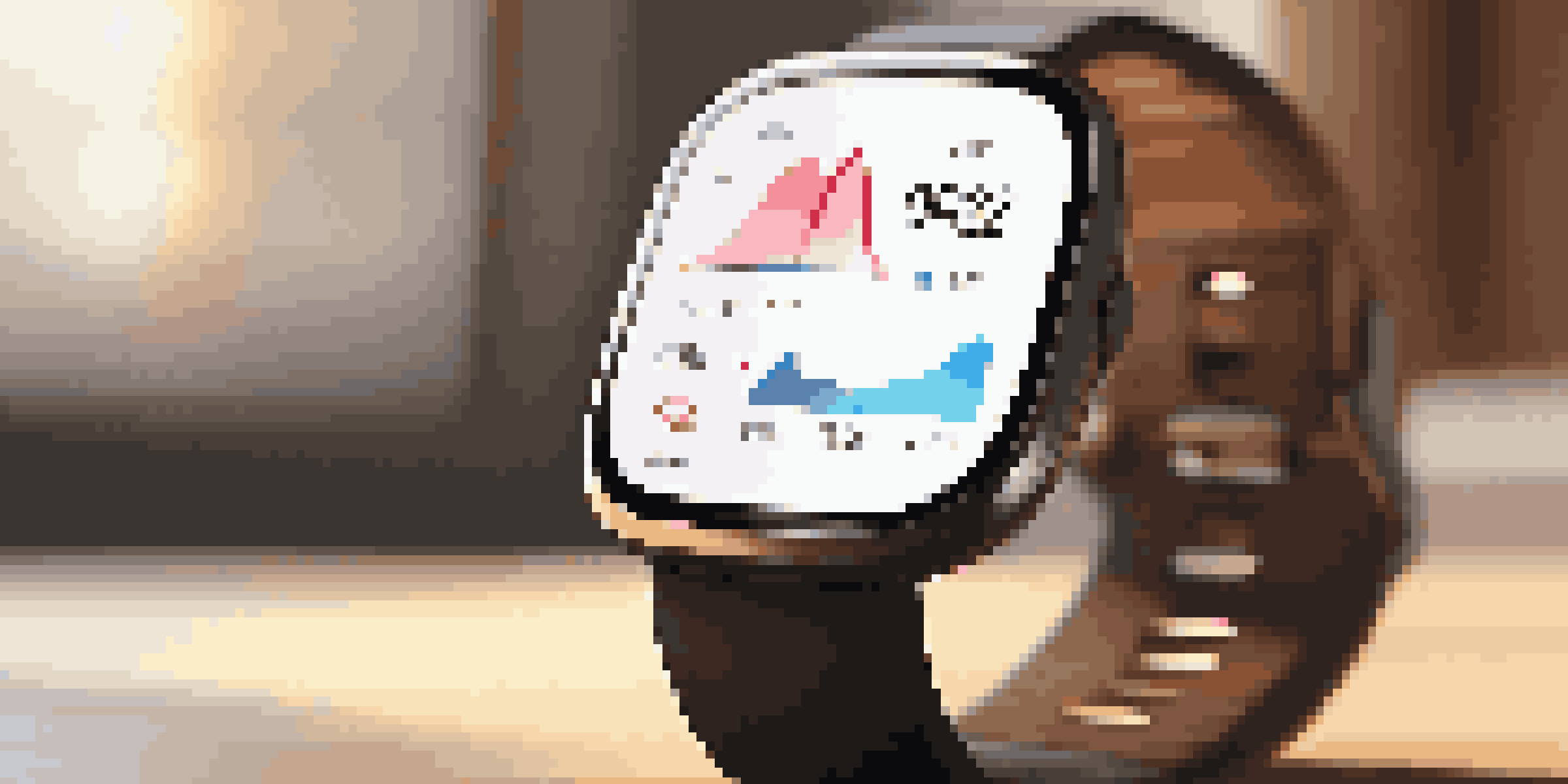Wearable Tech Evolution: The Next Wave of Health Tracking

The Rise of Wearable Technology in Health
Wearable technology has transformed how we approach health and fitness. From smartwatches to fitness trackers, these devices have become ubiquitous in our daily lives. They offer real-time data, making it easier for users to monitor their health metrics and achieve their wellness goals.
Wearable technology is the future of personal health management, allowing individuals to take control of their wellness like never before.
The journey began with simple pedometers, which counted steps, but has since evolved into sophisticated gadgets that can track heart rate, sleep patterns, and even stress levels. This evolution has empowered individuals to take charge of their health like never before. The convenience of having health data at our fingertips encourages proactive health management.
As technology continues to advance, wearables are integrating more features, like GPS for outdoor activities and notifications for a more connected experience. This progression not only enhances user engagement but also contributes to a greater understanding of personal health.
Key Features of Modern Wearable Health Trackers
Today’s wearable health trackers boast a range of impressive features designed to support various aspects of health management. One popular feature is heart rate monitoring, which provides insights into cardiovascular fitness and stress levels. Many devices now also offer ECG (electrocardiogram) capabilities, allowing users to monitor their heart's electrical activity.

Sleep tracking is another essential feature, helping users understand their sleep patterns and improve sleep quality. By analyzing sleep stages, these devices can offer recommendations for better rest, which is crucial for overall health. Moreover, continuous blood oxygen monitoring has become a game-changer, especially highlighted during health crises.
Integration with health apps enhances the functionality of these wearables, providing users with comprehensive health data and personalized insights. The combination of these features enables a more holistic view of one’s health, making it easier to set and achieve wellness goals.
The Role of AI and Machine Learning in Wearables
Artificial Intelligence (AI) and machine learning are revolutionizing wearable technology, enhancing their ability to provide personalized health insights. These technologies analyze vast amounts of data collected from users to identify patterns and trends that may not be immediately apparent. For instance, AI can predict potential health risks based on historical data, offering proactive recommendations.
The best way to predict the future of health is to create it through innovative technology and personal engagement.
This personalized approach is not only about tracking metrics but also about understanding individual health behaviors. By learning from users' routines and preferences, wearables can suggest tailored fitness plans, dietary adjustments, or even mindfulness practices. This level of customization fosters a more engaging user experience.
As these technologies continue to evolve, we can expect wearables to become even more intuitive and responsive to individual health needs. This shift towards personalization is likely to change how we interact with our health data, making it more relevant and actionable.
Wearable Tech and Chronic Disease Management
Wearable technology is playing a pivotal role in the management of chronic diseases, offering tools that enhance patient care and self-management. For individuals with conditions like diabetes or hypertension, wearables can track key health metrics, providing real-time feedback that can significantly impact daily health decisions. This capability empowers patients to stay engaged in their treatment plans.
Incorporating features like glucose monitoring and medication reminders, these devices help users adhere to their health regimens. This proactive approach not only improves health outcomes but also reduces the reliance on frequent doctor visits, thus alleviating healthcare system burdens. The convenience of having health information readily available can lead to better patient compliance.
Moreover, the data collected by wearables can be shared with healthcare professionals, allowing for more informed discussions during appointments. This collaboration between patients and providers fosters a more comprehensive approach to managing chronic conditions.
Privacy Concerns in Wearable Technology
As wearable technology becomes more integrated into our lives, privacy concerns surrounding health data have emerged. Many users worry about how their personal health information is collected, stored, and shared. This apprehension is valid, especially considering the sensitive nature of health data and the potential for misuse.
Companies must prioritize user privacy by implementing robust data protection measures and being transparent about data usage. Users should have control over their information, including the ability to opt out of data sharing or to delete their data entirely. Building trust is essential for the continued adoption of wearable technology in health.
Educating users about the importance of privacy settings and data security can empower them to make informed choices. As the industry evolves, it’s crucial for developers to prioritize ethical practices in handling health data, ensuring a balance between innovation and user protection.
Future Trends in Wearable Health Technology
The future of wearable health technology is brimming with potential, with several exciting trends on the horizon. One notable trend is the expansion of biometric monitoring capabilities, allowing devices to track more health indicators like hydration levels or even stress hormones. This comprehensive approach to health monitoring could provide users with an even more detailed understanding of their well-being.
Additionally, wearables are likely to become more integrated with other smart home devices, creating a seamless ecosystem that monitors health in real-time. Imagine your wearable communicating with your smart thermostat to adjust the temperature based on your sleep patterns or stress levels—this level of connectivity could redefine personal health management.
Moreover, advancements in battery life and design will make wearables more comfortable and user-friendly. As these devices become more sophisticated yet unobtrusive, we can anticipate a wider audience embracing wearable technology as an essential tool for health management.
The Impact of Wearable Tech on Fitness Culture
Wearable technology has significantly influenced fitness culture, encouraging more individuals to adopt healthier lifestyles. With fitness trackers providing immediate feedback on performance, users are motivated to push their limits and achieve personal bests. Gamification elements, such as challenges and rewards, also encourage friendly competition among users, fostering a sense of community.
Social sharing features allow users to celebrate milestones with friends and family, creating a support network that can help maintain motivation. This social aspect of fitness tracking can be especially beneficial for those who may struggle to stay committed to their fitness goals. The combination of personal accountability and community support can lead to lasting lifestyle changes.

As wearable technology continues to evolve, we can expect fitness culture to become even more inclusive and diverse. By making health and fitness tracking accessible to a broader audience, wearables are helping to break down barriers and inspire more people to prioritize their well-being.